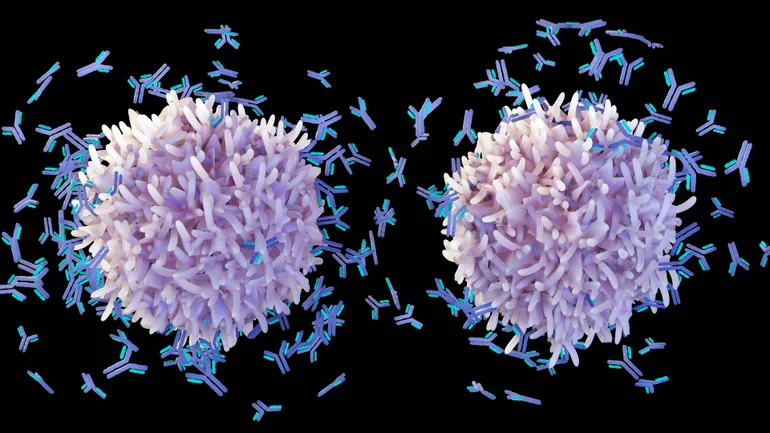Immunovant changes up plans for closely watched autoimmune drugs


Dive Brief:
- Immunovant told investors Wednesday that it’s shifting resources to focus on a less advanced experimental autoimmune disease treatment that appears more promising for future development.
- The company now plans to extend a trial of its former lead asset, batoclimab, in chronic inflammatory demyelinating polyneuropathy, or CIDP. Immunovant will then use the knowledge gained from the longer period of research to help with the development of IMVT-1402, which it says has features not seen with any other drug in its class.
- Both batoclimab and IMVT-1402 are known as FcRn inhibitors, which work by preventing the body from recycling immunoglobulin, or IgG, back into the blood. Argenx’s drug Vyvgart is an already approved member of the class, along with a competitor from UCB.
Dive Insight:
Immunovant’s decision sets back timelines for research announcements that could bolster the stock, and investors appeared wary on Thursday, sending the company’s shares down more than 7% in early trading. In addition to an extra two quarters for the CIDP trial, the completion of a study of batoclimab in myasthenia gravis will now also come later than analysts expected.
Still, the company’s shift in priorities makes long-term sense, analysts said. “IMVT-1402 is the key value-driver,” Stifel analyst Alex Thompson wrote in a note to clients. Indeed, Immunovant said it expects to kick off as many as five registrational trials for IMVT-1402 by the end of March 2025.
Immunovant is trying to enter a space that’s both competitive and difficult, with multiple different approaches advancing simultaneously. Hours before Immunovant’s announcement, Biohaven released results on a different type of IgG degrading drug that failed to meet analyst expectations, causing a sell-off in the company’s stock on Wednesday. It recovered some of the losses early Thursday.
The Swiss drugmaker Roche also recently experienced a setback with a drug that’s been seen as a potential competitor to FcRn blockers, though development is ongoing. Immunovant, meanwhile, has seen promising early research with IMVT-1402, and Johnson & Johnson told investors in February that it’s seen positive results from its FcRn inhibitor nipocalimab.
Immunovant is a one of the portfolio companies of Roivant, a ‘hub and spoke’ biotech that houses drug programs in individual startups. Roivant has sold some of its holdings, most recently Telavant in a $7.1 billion deal with Roche, but said in August that decisions on other parts of its portfolio would probably wait until key data from Immunovant was available.
This post has been syndicated from a third-party source. View the original article here.




